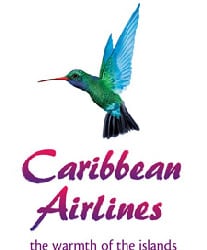Jamaica’s Ambassador to the US presents credentials to U.S. President
WASHINGTON, DC – Jamaica’s New Ambassador to the United States, Anthony Johnson, presented his Letters of Credence to President George W. Bush, at the White House last week Wednesday, April 9.
A former Member of Parliament, who previously served as Minister of State in the Ministries of Industry and Commerce, as well as Agriculture during the 1980s, Ambassador Johnson more recently served as Minority Leader in the Senate and was a senior lecturer in the Department of Management Studies at the University of the West Indies, Mona.
The Jamaican envoy, who was accompanied by his wife Pamela, expressed Jamaica’s desire to “deepen the bonds of friendship and the ties of co-operation that have united our peoples for so many years,” and to build on existing relationships on the economic and security fronts, which will serve to aid Jamaica’s progress and development.
Identifying the areas of trade and investment as key components of this partnership, Ambassador Johnson urged President Bush to support the renewal and enhancement of the Caribbean Basin Initiative (CBI), which is set to expire in September of this year. He stressed that enabling mechanisms, such as the CBI, would serve to increase Jamaica’s economic competitiveness as the country continues to “seize the opportunities that globalization presents.”
Noting Jamaica’s close geographic proximity to the United States,
Mr. Johnson said that Jamaica aimed to take advantage of this reality by leveraging its significant capabilities with respect to the movement of goods within the hemisphere. “We have the fastest growing trans-shipment port in the Latin American and Caribbean region, which is a natural hub for the on-time distribution of American goods throughout the hemisphere. We know that you are aware of these competitive advantages, but wish to emphasize that there is a great need for affordable financing and for a sustainable trade regime that can continue to attract American firms and their know-how,” he said.
He further emphasized that Jamaica was in the process of adjusting its economy to better enable it to meet the heightened competition that exists in the global marketplace. “The challenges that confront small developing states, such as ours, stem from vulnerabilities that are associated with our open economies, susceptibility to external shocks and pandemic threats, as well as the catastrophic risk of natural disasters,” the Ambassador said.
Noting that the Jamaican Government remained concerned about the impact of crime on the country’s development prospects, he pointed out that Jamaica was “at risk from the scourge of trans-national criminal networks, which seek to exploit the physical features that are characteristic of small island states.”
On the role of the Jamaican diaspora in the United States and its facilitation of a longstanding and vibrant interchange between both countries, Mr. Johnson said that the United States had provided Jamaicans with the ability “to acquire a wide range of professional and technical skills (and) to rise to positions of leadership within business, government and the non-profit sector. It is as a result of this that they have been able to make such a significant contribution to the development of the United States.”
To this end, Ambassador Johnson told the U.S. President that the Government of Jamaica would continue to actively work with the Jamaican diaspora to “jointly stimulate greater growth in our economy, such as through the identification of opportunities for joint venture arrangements that will expand the quantity of foreign direct investment that originates from the United States.”
For his part, President Bush noted that Jamaica and the United States shared “significant interests” and that it was important that both countries continue to “strive to strengthen democracy and respect for human rights (and to work to) establish the rule of law and to defeat terrorism, narco-trafficking and the violence they spawn.”
Mr. Bush also mentioned that the U.S. had intensified its co-operation with Jamaica and the Caribbean Community (CARICOM), through joint policy initiatives agreed to during last year’s Conference on the Caribbean, and emphasized that the conference provided a framework within which the United States and Jamaica could deepen efforts to “achieve our shared goal of a stable, secure and more prosperous Caribbean.”
Turning to the need to ensure greater security of the region’s borders and ports, President Bush expressed satisfaction with Jamaica’s support for and participation in ongoing co-operative efforts to interdict drugs and to combat terrorism within the region and the hemisphere.
“Our mutual commitment to safeguarding borders and people stands as a mainstay of our hemispheric security, and I rely on your country’s leadership, dedication, and initiative to help further the fight,” he said.

